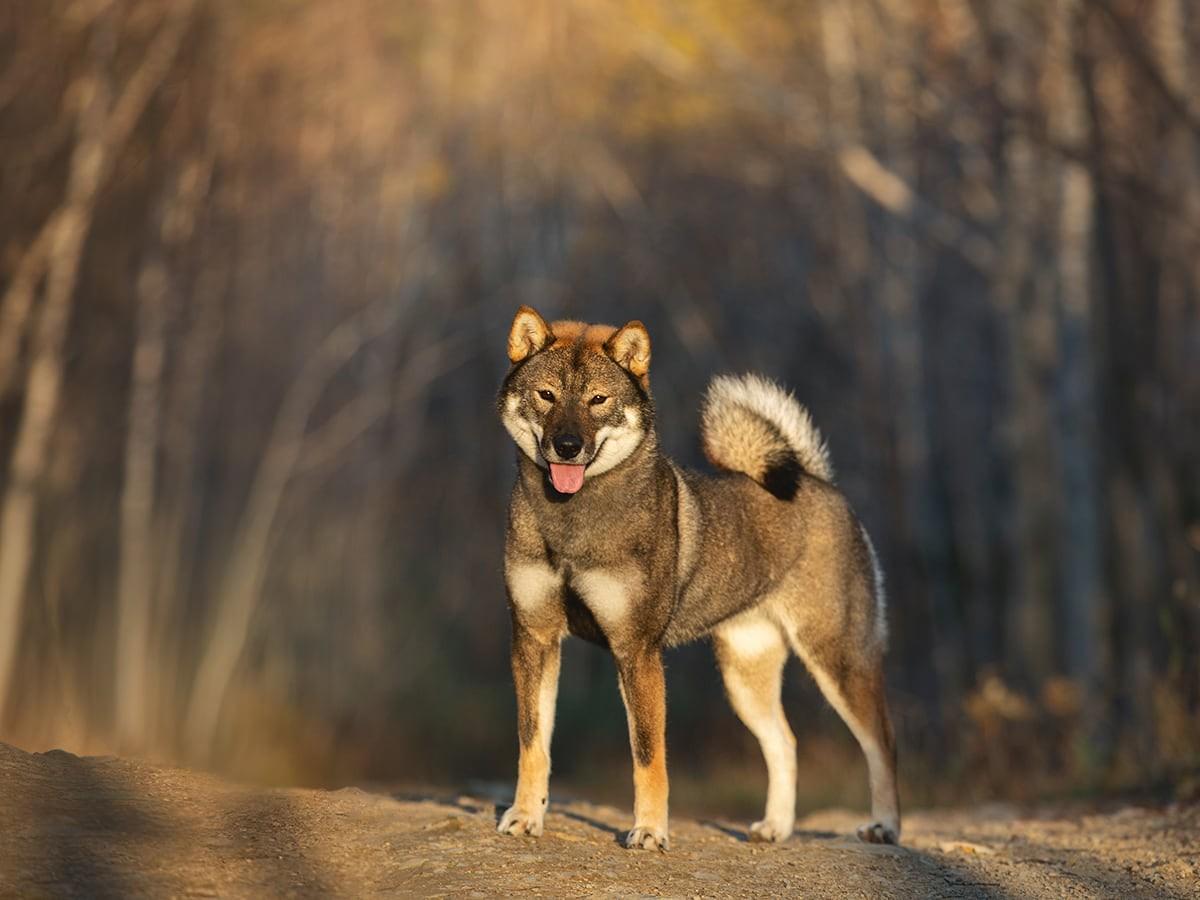
Shikoku
The Shikoku is a medium sized dog with erect ears, curled up spitz tail and a square body. Their eyes are almond shaped and brown in color.
Breed Profile
Height
17 - 21
Inches
Weight
35 - 55
Pounds
Life Span
10 – 12
Years
Health
health
Elbow Dysplasia
What is it?:
Elbow Dysplasia is a condition that causes one or both the elbows of the dog to grow abnormally.
Clinical signs
Lack of enthusiasm
Stiffness in the legs
Swollen elbows
Limping while walking
The elbows may be at a strange angle
Treatment
For the treatment of elbow dysplasia, there are a few options, one of the first ones is to give them anti-inflammatory drugs for the swelling and pain. In severe cases, surgery may be recommended for better results. Physiotherapy, hydrotherapy, or radiotherapy may be given to treat the condition. Joint supplements may also help slow down the progression of arthritis
Eligible vet bill
$4,000
*Hypothetical reimbursement examples illustrate reimbursement of an eligible vet bill at the noted reimbursement rate, assuming the annual deductible had already been satisfied and the annual coverage limit has not yet been met. Annual deductible, co-insurance, benefit and coverage limits, and exclusions may apply. Eligibility may vary. Visit https://spotpetinsurance.ca/sample-policy for full terms. For Canada enrollments only, reimbursement rate is based on the pet's age.
health
Epilepsy
What is it?:
Epilepsy is a neurological disorder where brain activity is not normal and it can cause seizures, sensations, loss of awareness, or unusual behavior.
Clinical signs
The symptoms of Epilepsy in Shikoku are:
Stiffness in the muscles
There is a spell of staring
Jerking in the arms and legs which may be uncontrollable
Unconscious spells
Symptoms of psychological distress such as fear, anxiety, and déjà vu
The symptoms of Epilepsy may have a particular pattern and repetition
Treatment
Epilepsy is not completely curable. It is a high possibility that your dog may be on medication for the rest of its life. Antiepileptic drug therapy can be given to make sure that the epileptic episodes are reduced over a period of time.
Eligible vet bill
$1,000
*Hypothetical reimbursement examples illustrate reimbursement of an eligible vet bill at the noted reimbursement rate, assuming the annual deductible had already been satisfied and the annual coverage limit has not yet been met. Annual deductible, co-insurance, benefit and coverage limits, and exclusions may apply. Eligibility may vary. Visit https://spotpetinsurance.ca/sample-policy for full terms. For Canada enrollments only, reimbursement rate is based on the pet's age.
Personality
Affectionate
The Shikoku may be a reserved dog around strangers but they are affectionate pets and love a good belly rub!
Loyal
They Shikoku is a protective and loyal breed, they would do anything to protect their masters.
Smart
The Shikoku is a smart breed and they are good at playing by themselves. They are fast learners and love to have a good run outdoors.
Lifetime Care
Coat
The Shikoku has a double coat. Despite its thick undercoat and tough outercoat, the coat is soft on the outside.
Colors
The coat of the Shikoku comes in three colors: black, sesame and red. The dog may also have white or cream marks on their legs and body.
Hypoallergenic
No
Grooming
The Shikoku needs and occasional bath to keep themselves clean. Their nails need regular trimming to avoid it from breaking. Their dense, soft fur requires brushing to maintain its health.
Training
The Shikoku are intelligent and fast learners. They require patience as they can be stubborn. They should be taught with a strong command and reward-based method.
The Shikoku dog breed got its name from the place it originated from which is the Shikoku region of Japan which is a mountainous area. This breed was bred around different parts of the island, the Hongava variety is supposed to be the purest breed among the others.
Shikoku: Introduction to the Breed
The Shikoku is a docile and calm dog breed.
Shikoku Dog Breed Physical Characteristics:
Erect ears
Wedged face
Square body
Dense fur
Shikoku Dog Breed is best suited for pet owners:
Who wants an active companion
Who have grown up children
Who wants an obedient pet
Who has time to train their dog
Things to watch out for before deciding to own a Shikoku Dog
The Shikoku may need to be introduced to socializing early on as they can be aloof and stubborn around strangers.
The Shikoku is a dignified breed and needs to be around older children who have mutual respect for them.
The Shikoku is a hunting dog and needs to be taught how to coexist with other pets so that they are not aggressive toward them
The Shikoku needs regular exercise as they are agile and love a good hike or walk in nature.
What should a Shikoku eat?
The Shikoku is an active breed and needs to be given food that has enough proteins to give them energy and build lean muscles. They should be given high-quality dog food, keeping in mind that their weight is maintained. This dog may have a tendency of gaining weight and facing problems like hip dysplasia or arthritis.
Conclusion
The Shikoku may be a hunting dog but they are very good at bonding with their family, which also makes them loyal. They are also a calm and docile breed, who are agile when outdoors. One of the positives about the Shikoku breed is they have no genetic medical conditions which makes them a healthy breed to own. They are good with older children and love interacting with them outdoors. The breed may be stubborn but, they are a great pet to have once trained!
Sources:


